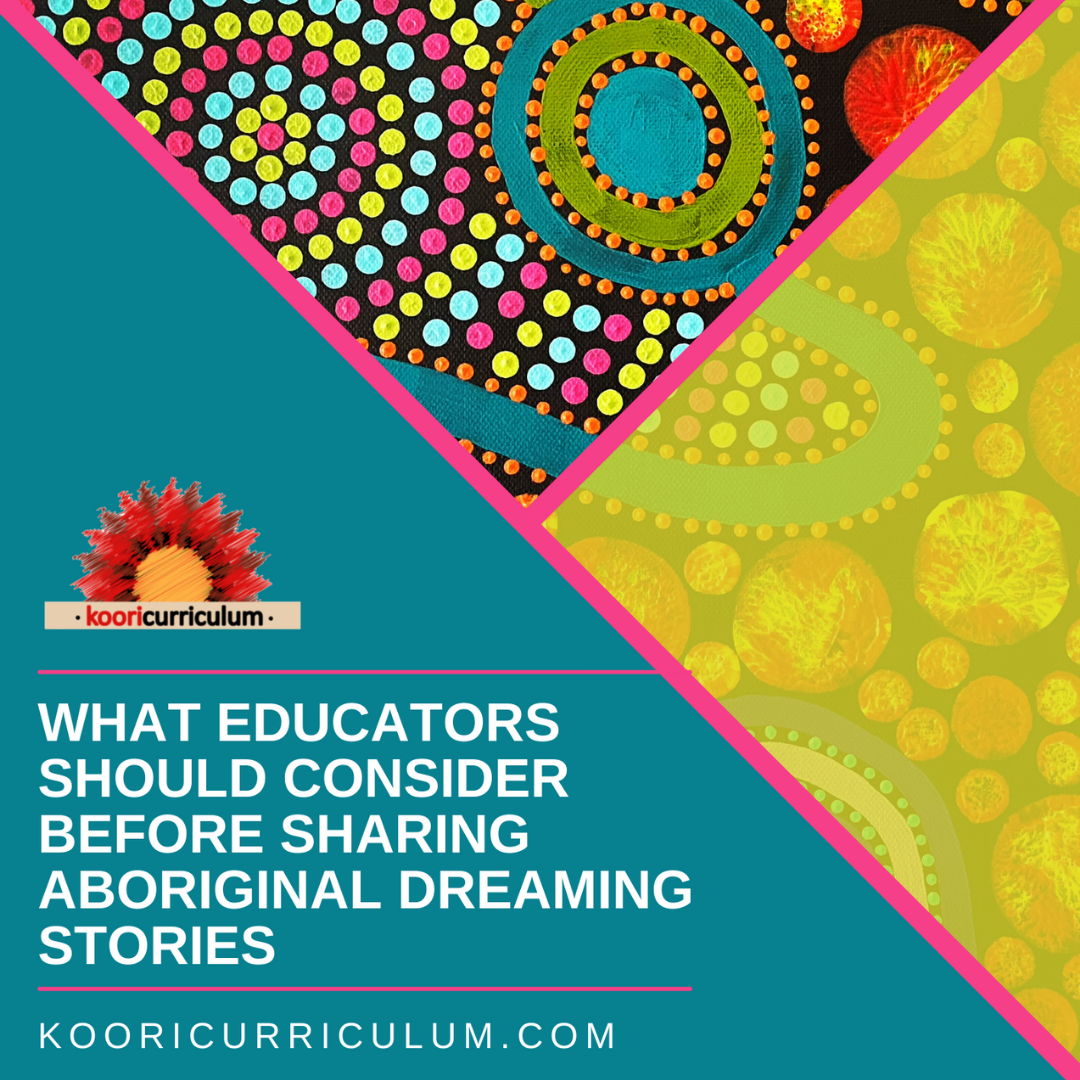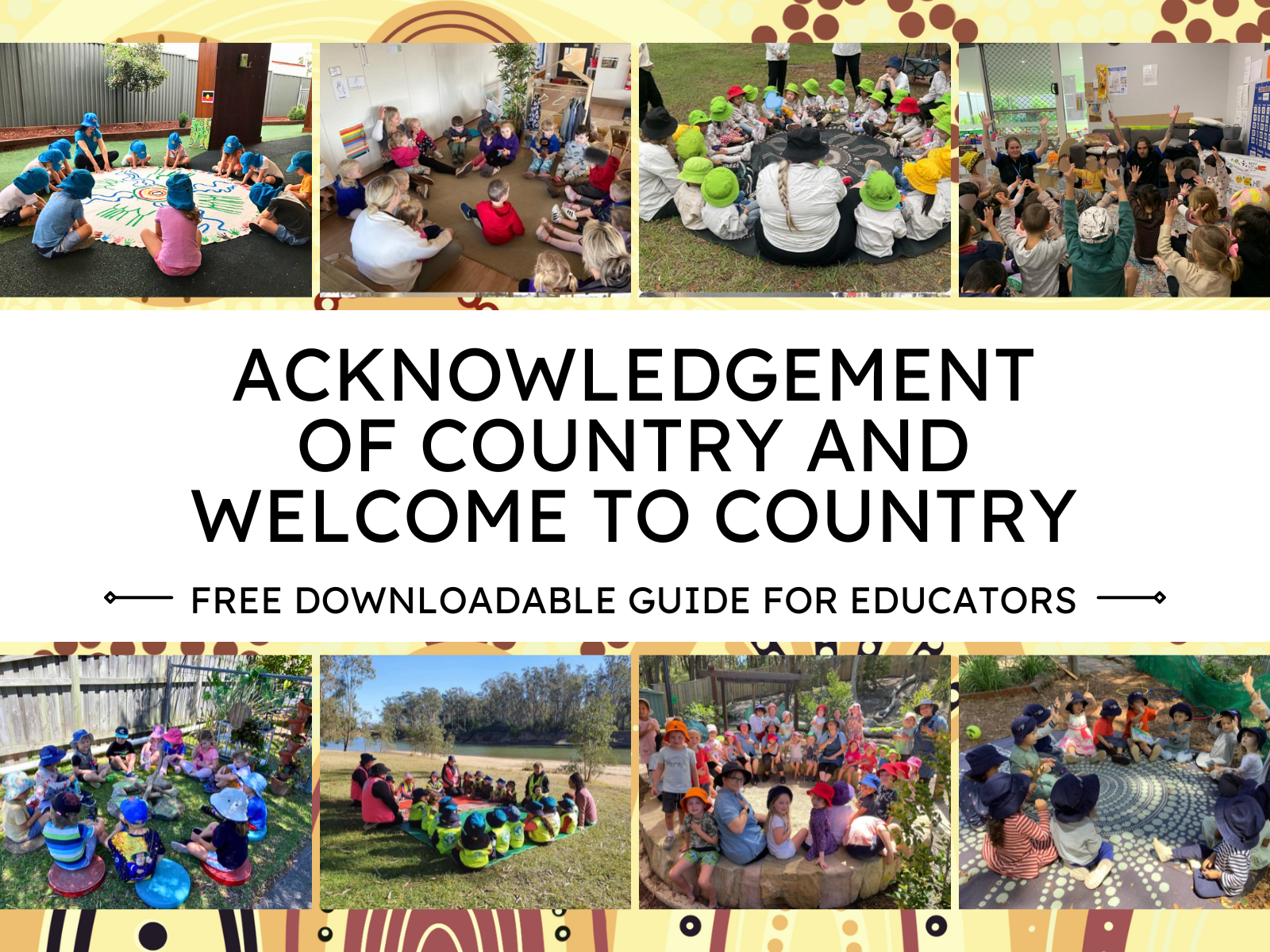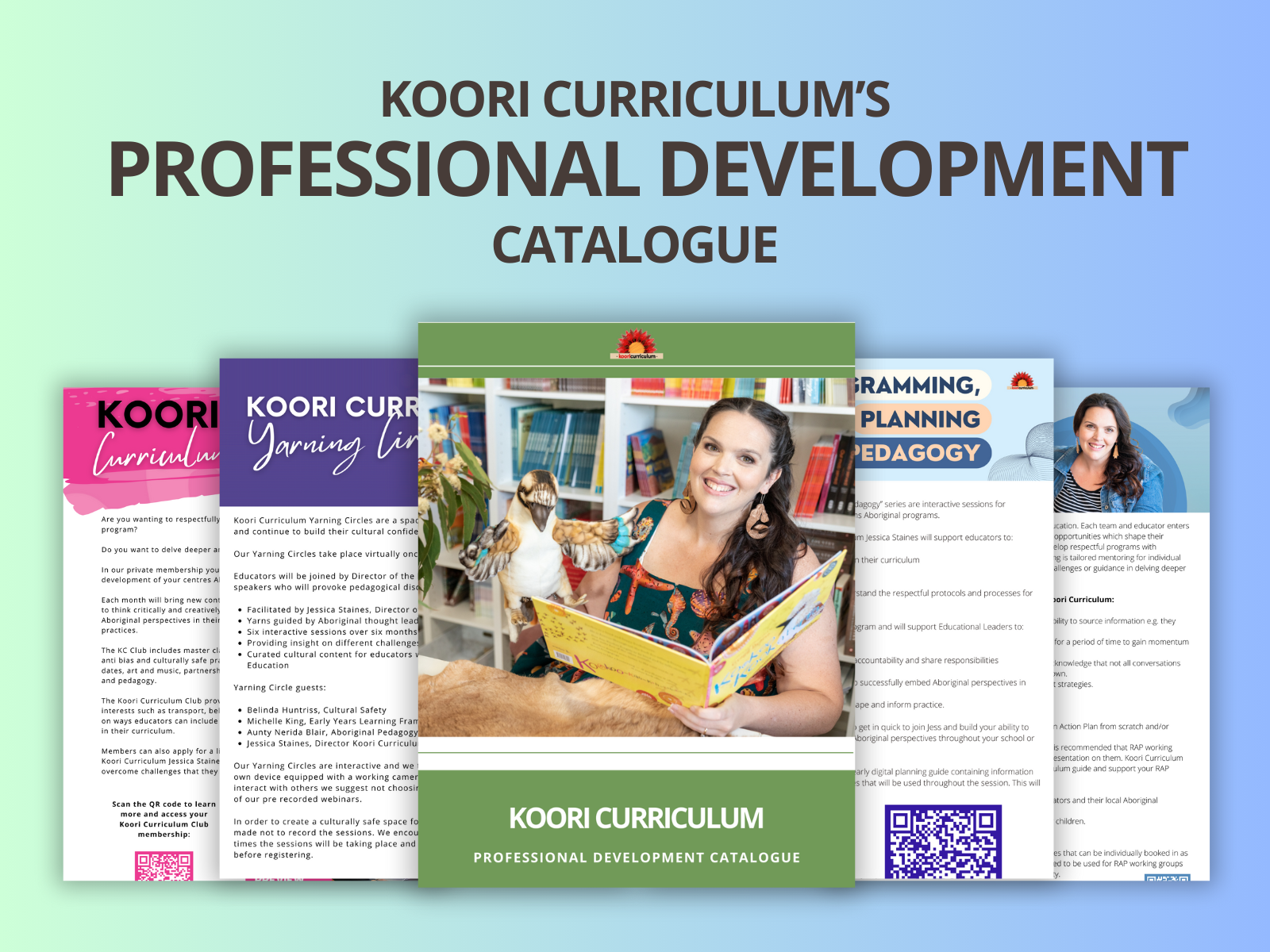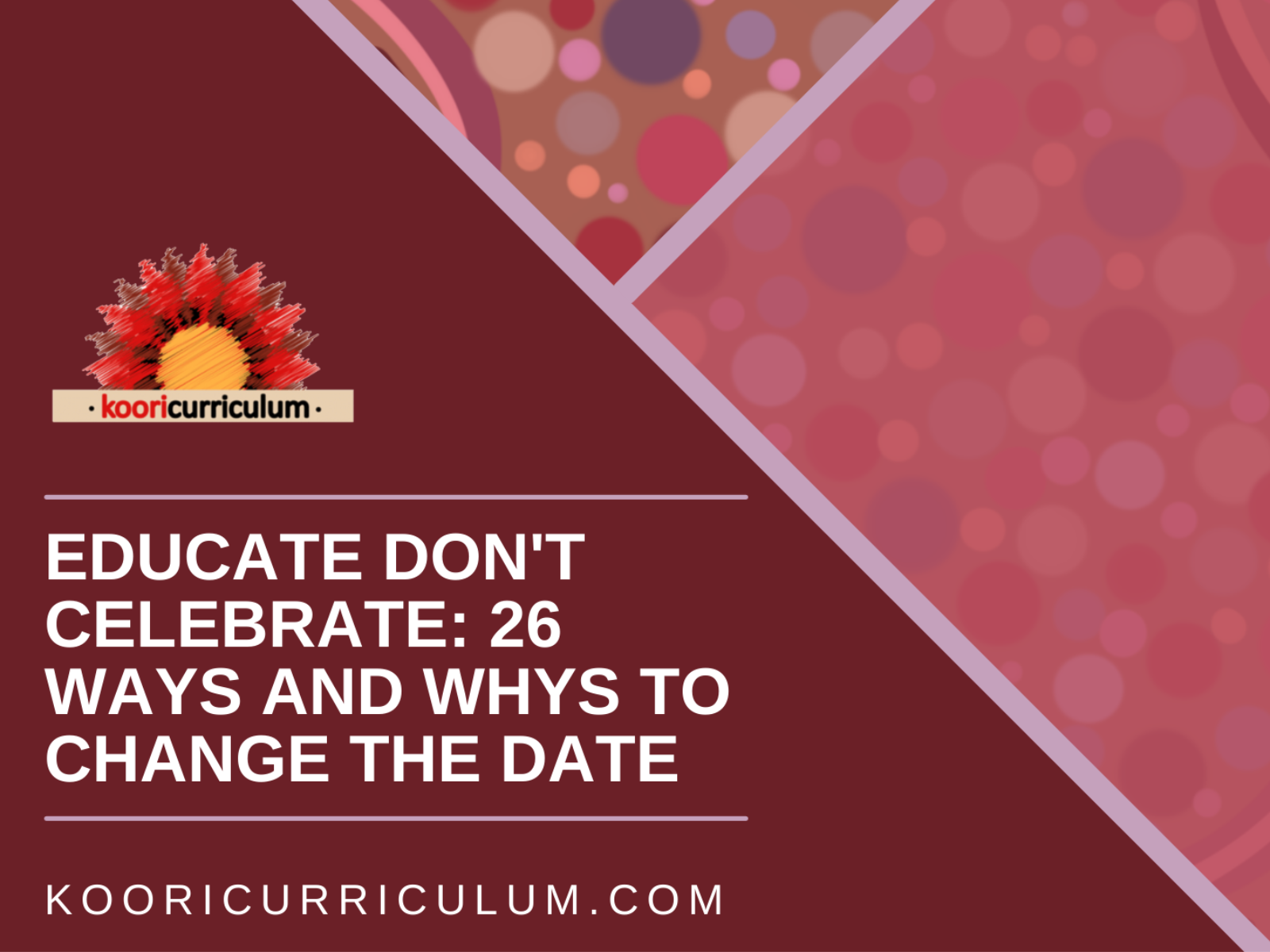
What Educators Should Consider Before Sharing Aboriginal Dreaming Stories
A lot of people refer to the Dreaming as the Dream Time. This can infer that our culture happened or is somehow fixed in time. The Dreaming, however is more fluid and represents the past as well as the here and now.
If you are a Christian you believe that God exists not that he existed. It is similar with Aboriginal peoples and culture.
There is a fine line between religion and spirituality. However, what is important to understand in terms of the Dreaming is that we as Aboriginal peoples believe it to be true. It is not a fable or make-believe.
I question the use of Dreaming stories in early learning programs. Do you share other religious stories from various faiths or have you made an exception for Aboriginal beliefs and if so why?
Before doing anything in relation to Aboriginal programs always ask yourself why?
This guide will provide further information about Aboriginal Dreaming stories, questions to ask yourself, and resources to assist you in embedding an Aboriginal perspective in your early learning programs.



